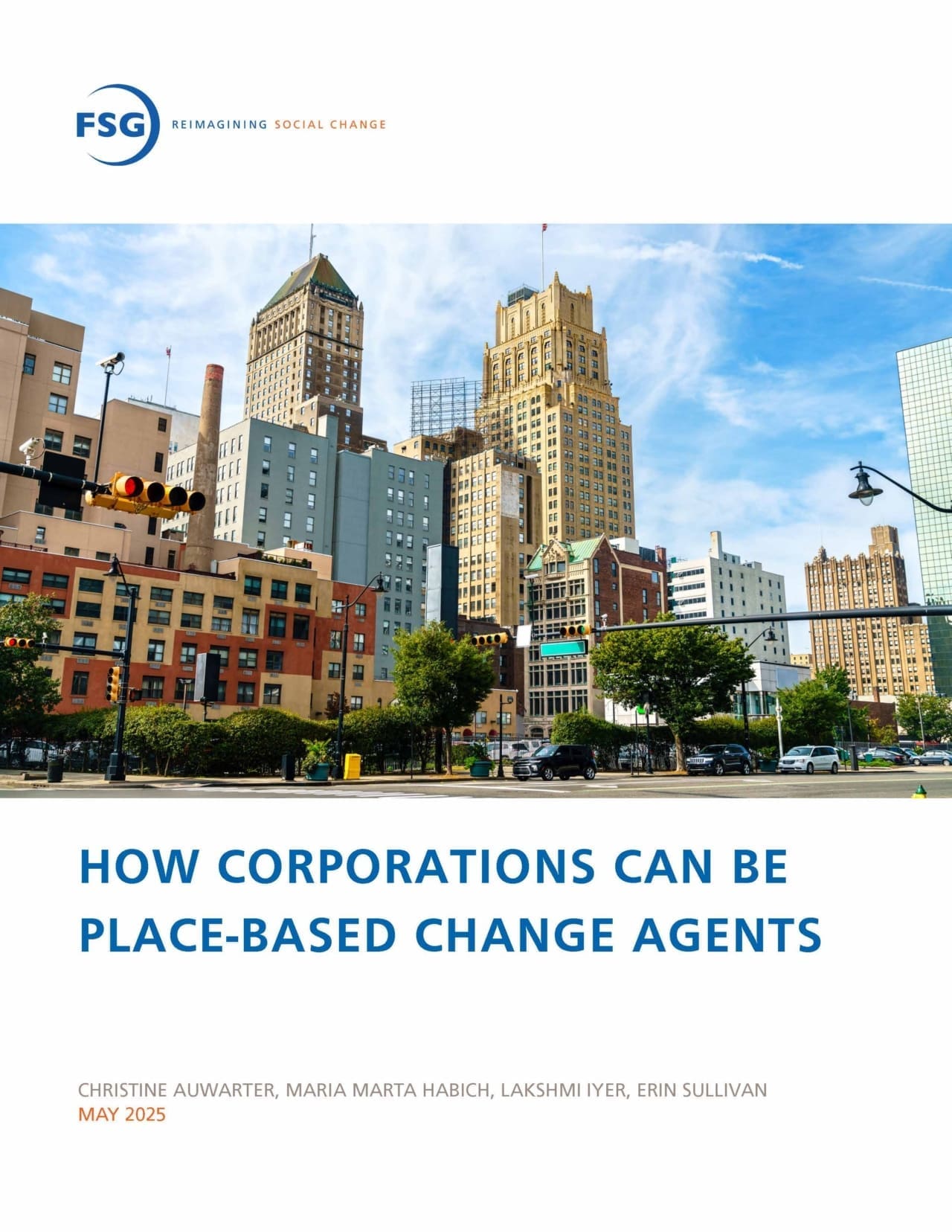Whether companies have regional, national, or global operations, they have the opportunity to be at the forefront of driving place-based change. After all, companies profoundly influence local economies, shape employment trends, the small business ecosystem, real estate prices, and education trends. Many companies have philanthropic efforts to complement their community affairs teams in places where they have a significant presence such as company headquarters or manufacturing sites.
In FSG’s work advising companies, we have seen four common ways in which companies position themselves as local change agents:
- Anchor Institution: Companies who catalyze local economic growth by buying, hiring, investing, and giving locally
- The Collaborator: Companies who catalyze or support multisector place-based collaborations to solve a shared challenge
- The Specialist: Companies who prioritize one specific locally relevant social issue and use a range of resources to address it
- The Community-Directed Donor: Companies who design their local investment strategies by prioritizing community voice and input
This brief provides an overview of the four archetypes with real-life examples of how companies such as Prudential Financial, Verizon, 3M, and Microsoft have structured their own efforts. We also provide considerations for designing your own place-based change strategies.
Webinar Recording: From Global Goals to Local Impact: How Corporations Can Drive Place-Based Change
Download presentation slides >
On November 6, 2025, FSG hosted a webinar to discuss how companies can leverage their full range of business assets to drive meaningful local impact in place with leaders from Prudential and 3M.
Speakers
- Sarah Keh, Vice President, Inclusive Solutions, Prudential Financial
- Michael Stroik, Vice President of 3M Community Impact, 3M
- Lakshmi Iyer, Managing Director, FSG
- Erin Sullivan, Managing Director, FSG






